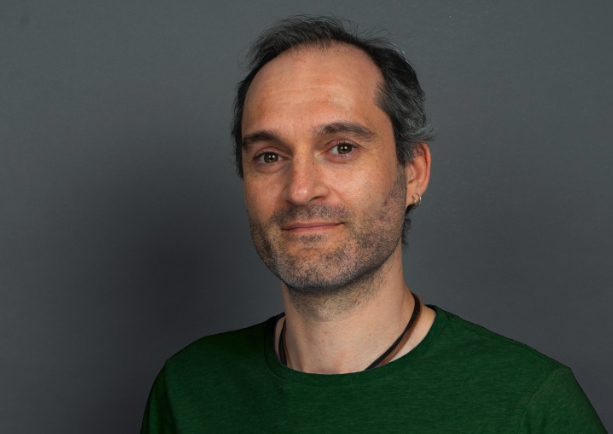Andrew Harry
BA (Philosophy)
- Availability:
- Accepting New Clients
- Session Format:
Online Therapy
Phone Sessions
- Office Hours:
- Monday, Tuesday, Wednesday, Thursday
- Clientele:
- Adults
Contact Information
- Email:
- ahrp.therapy@mailfence.com
- Website:
- ahrp-therapy.com
From the outside, therapy can seem strange and mystical, and therefore daunting. There is certainly a kind of magic that happens in session, but the process itself is actually pretty simple. We sit together and talk about your life, the people you love and the people who have hurt you, the experiences you have had—both good and bad. We explore new perspectives in thinking and learn to understand and manage emotions in a healthier, more balanced way.
Talking this out is healing all by itself, but 99% of your life happens outside of our hour together. Now the challenge is: You know how you feel and how you want to live, but now you have to start living it!
This process can be frightening and confusing, and it might sometimes seem like things are getting worse. In this, it’s easy to get demoralized, and so the purpose of our sessions now becomes to encourage and support you, to keep you on track, and to remind you what you’re working towards: emotional stability, active decision-making, self-confidence, deeper relationships, and feeling really alive.
My approach is personable and conversational. I try to approach topics as honestly as I can, and with a minimum of jargon. You are always encouraged to speak without labeling or censoring yourself. You are welcome to use the actual words that truly express what you see, think, and feel.
We might talk a lot (or not!), but emotions are the real core of our work. I don’t give homework, but I will encourage you to start paying attention to and remembering the things that happen to you in “real life.” You can start now, if you like. Notice how thoughts and emotions move and what makes them change. Notice the memories and feelings associated with specific people, places, and things. Notice the places where you feel relaxed, and times when you become anxious, or lonely, or depressed.
I especially like to focus on learning to tolerate and feel secure in your emotions, and figuring out how to direct them into creative, effective, and satisfying solutions to your problems. So, much of our work will be about tracing the strands and finding patterns within your web of memory and association. The image of yourself that emerges doesn’t need to be perfect or complete, but lasting change starts with understanding where you come from and what you’re actually trying to change.
In my experience, the best way to discover these things is to tell someone who you truly are and what you truly think and feel. And my job is to hear you, and understand you, and help you make it all make sense.
I have completed a 5-year diploma and practical apprenticeship in psychodynamic psychotherapy. This training included the requirement of being in therapy myself, and so I deeply understand how intimidating and challenging it can be. But I also know just how fascinating and how much fun therapy is if you approach it with the right attitude.
My academic background is in philosophy, but my therapy practice is informed by many different disciplines like Zen Buddhism and western theology, music, art, and literature, quantum physics and chaos theory, and sociology and anthropology.
My personal background is equally diverse. My parents are both immigrants from different countries (Scotland/Jamaica) who met and made a life together in Canada. I myself have lived in a number of countries and have learned a new language (German) in adult life. So even though I don’t look it, I’m multi-ethnic (or bi-racial, if you prefer that term), multi-lingual, and multi-cultural. Canada is home for me, but like many first-generation Canadians, the complexity of my experience often makes it difficult to feel like I belong.
In many ways, however, I feel like this is the ideal position for a therapist to work from. No two people or cultures are alike, and for me, constantly shifting between identities has made me sensitive to the psychological subtleties of being a complex person in a complex world.
In working with people with both “simple” and “complicated” personal and family histories, my repeated experience has been that creating space for and making sense of these stories is the essence of effective therapy. Knowing yourself and what makes you you sets a solid foundation on which to build the person you want to be, and life you want to live. This is my own experience, and I hope it will be yours, too.
I offer a 30-45 minute Zoom or phone consultation, so that you can get a sense of what it will be like for us to talk together and work together. This meeting is always free and has no obligation for follow-up sessions.
If you’re interested in working with me, please email me: ahrp.therapy@mailfence.com
I usually respond within 24 hours to set up a first meeting.
I am not currently doing in-person sessions, but I am happy to work through Zoom, phone, email, or text, as you prefer.
I look forward to meeting you and beginning our work together.
Thank you for visiting my profile. If you would like to schedule a no-cost initial consultation, please contact me at ahrp.therapy@mailfence.com.
I am always happy to answer any questions about either psychotherapy or my approach to therapy, so please do get in touch.

